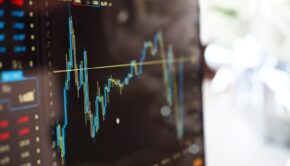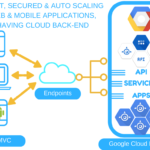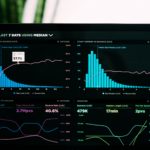Important Steps In Choosing A Forex Broker So You Don’t Get Scammed
As far as Forex brokers go, the more vetting you do the safer you’ll feel down the line. After all, this is one broker you’re going to trust with your hard earned cash and investments. Without doing proper research and auditing before you finally settle on the right broker that inspires confidence in you, you’re no better than many of the people who get scammed online.
However, with the wealth of information available, it’s easier than ever to make an informed decision. Check the info about an Etoro Forex broker trading, for example – a broker with plenty of good reviews. By reading through these reviews and conducting your own research, you can gain confidence in your chosen broker and rest easy knowing your investments are in good hands. Don’t be like the countless others who blindly trust without doing their research. Take the time to ensure you’re putting your money in the right place.
This vetting process can take a longish time, and during your auditing and research, you shortlist those who meet your criteria (discussed below) until you have a list of good brokers to choose from. Then it would be a matter of selecting the Forex broker who is regulated, keeps your private data secure, offers good customer service and doesn’t charge high fees. So where do you start and what will help you determine the right broker for you? Here’s how to choose a good Forex broker.
Is the Forex Broker Regulated
Regulation is one of the most important factors to help you find a trustworthy Forex broker. A regulated broker is one who has enough capital to handle trading losses and manages clients accounts securely and keeps each client and their funds separate from the others. Adequate regulation also means that the broker adheres to the fair trading practices to ensure that your trading will be executed using the best prices. Regulation is what separates professional and genuine brokers from scammers.
Luckily Forex trading is regulated by most countries. But keep in mind that each country has its own regulations that differ from those in other countries. In the US, select a broker who is registered with both the National Futures Association (NFA) and the U. S. Commodity Futures Trading Commission (CFTC). The European Union (EU) has one regulatory body even though each member of the EU can have its own individual regulator.
In general, and following the 2008 global financial crisis, the US regulations are more stringent than their European counterparts. US brokers can’t offer leverages more than 50:1, are not allowed to use credit cards to make deposits and can’t offer their clients Contracts for Difference (CFDs).
How Secure is your Data
Security is of the utmost importance. The last thing you’d want is to have a broker who doesn’t take data security seriously enough to prevent hacking. Your personal information, financial assets, as well as your investments could be lost. Forex brokers require a lot of information from you to open an account. Your passport, credit card numbers, bank account information, as well as utility bills, are all required. Without data protection, you could become a victim of identity theft and lose everything you own.
Ask your shortlisted broker in advance if they have internet security in place including firewalls. Do they use Secure Sockets Layer (SSL) encryption on their website, and if they employ a a two-factor authentication to make it really difficult for hackers to hack your account. Finally, make sure the broker’s privacy policy guarantees that your personal data will remain private and will not somehow end up with third parties.
Spreads and Fees
Depending on the amount of trading you plan to do, the broker’s fees can carve a big slice of your profits in the long run. Even if the difference between one shortlisted broker and the next is a fraction of a percentage, that could turn out to cost you a lot of money and impact your bottom line. That said, you need to tread carefully here. Not all low-cost brokers would offer a great service compared to other brokers who do a lot of research and market analysis. So it’s a trade-off really.
However, what you need to know is that spreads are what brokers rely on to make money. As a trader, you need to choose a broker who has a tight spread. This will make it cheaper for you to trade and make a profit. Spreads can be fixed or floating. Knowing which type you prefer will help you decide on the right broker for you.
Fees, on the other hand, are not that easy to classify since they vary from one broker to the next. Some brokers would charge fees for depositing, using your credit card, withdrawing money out of your account, inactivity, and even when you close your account. It’s worth looking into these additional fees and researching the broker before committing to one.
Customer Service and Trading Tools
As a beginner, you’ll need all the help you can get to find your way around the complex market and trading trends. Your broker should have a solid customer service system in place that provides answers to your questions in real time. From opening the account all the way to finding which trading options are best for you, a friendly staff would help you get on your feet pretty quickly. For that, you’ll need phone support and live chat. So make sure the broker has these systems in place. If the broker only offers email support or filling up a form, then you need to look for one who offers better customer service.
The same applies to the trading tools the broker offers for free to all their customers. These include articles, videos, webinars, e-courses, ebooks, and seminars about trading. Such material is available only for you when you open an account, however, it’s wise to check if the broker offers such material in the first place. Ask their customer support (by phone or through live chat) and ask about the quality of these tools. They are not always of the same quality, but the more tools the broker offers, the better they educate and look after the interests of their customers.
Choosing a Forex broker is a lengthy process that requires research, comparing, and vetting. Make sure your broker is registered with the regulatory body in your country and that they are committed to keeping your data and all communications encrypted and secure. When you find the broker you can trust with your money, you’ll be able to focus on what you want to do the most: trading.
















